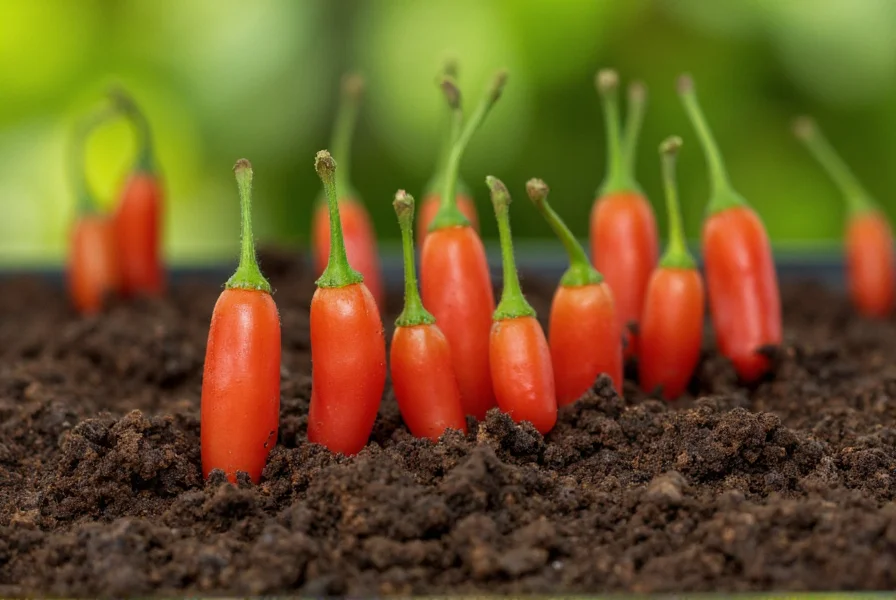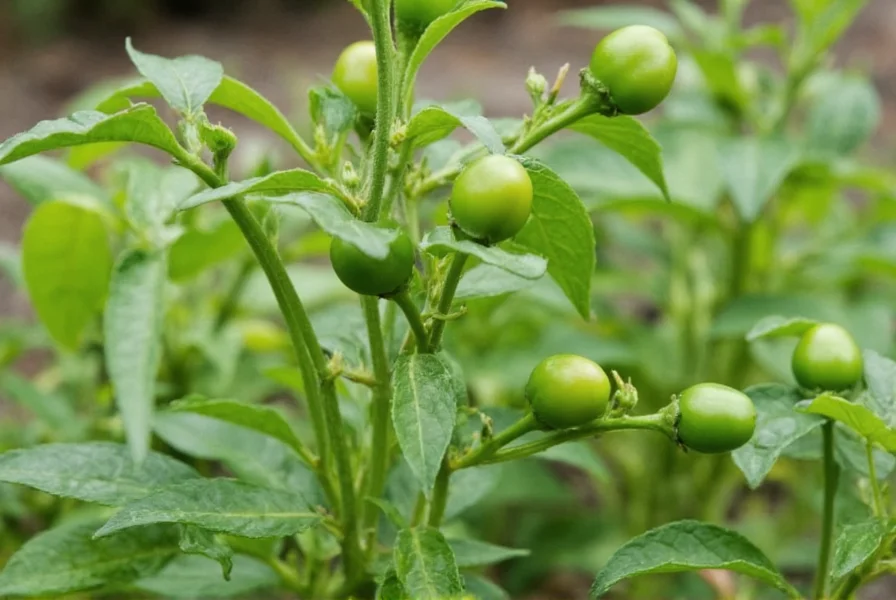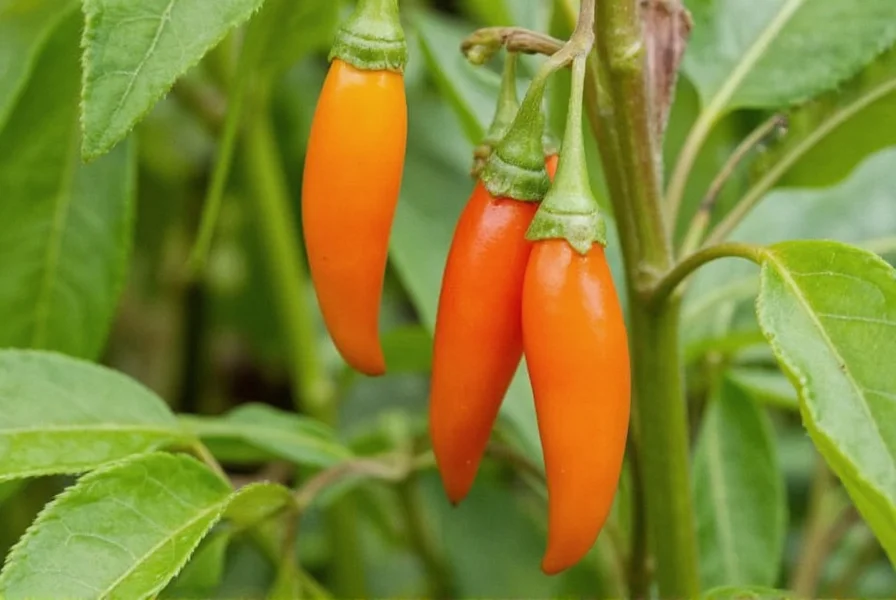Understanding Peppadew Pepper Seeds and Their Origins
Peppadew pepper seeds come from a distinctive cultivar of Capsicum annuum known botanically as Capsicum annuum 'Peppadew'. These seeds produce the popular sweet piquanté peppers that have gained international recognition for their unique flavor profile. Originally discovered in the Limpopo province of South Africa, peppadews are not a naturally occurring wild species but rather a selectively bred variety developed for commercial production.
When planting peppadew pepper seeds, gardeners should understand these aren't typical bell pepper seeds. The resulting plants produce small, cherry-sized peppers with a distinctive sweet-tangy flavor and minimal heat (measuring only 500-1,000 Scoville units). This makes them significantly milder than jalapeños (2,500-8,000 Scoville) while offering more complexity than standard sweet bell peppers (0 Scoville).

Optimal Conditions for Peppadew Pepper Seed Germination
Successful germination of peppadew pepper seeds requires specific environmental conditions. These seeds typically sprout within 7-14 days when maintained at consistent temperatures between 75-85°F (24-29°C). Below 70°F (21°C), germination becomes significantly slower and less reliable—a critical consideration for gardeners in cooler climates.
For best results when starting peppadew pepper seeds:
- Use seed starting mix rather than regular garden soil
- Plant seeds ¼ inch deep in moist (not soggy) medium
- Maintain consistent moisture using a spray bottle
- Provide bottom heat if room temperatures are below 75°F
- Cover trays with humidity domes to retain moisture
Many first-time growers make the mistake of planting peppadew pepper seeds too early. These seeds should be started indoors 8-10 weeks before your last expected frost date. Starting too early can result in leggy, overgrown seedlings that struggle to adapt when transplanted outdoors.
Growing Requirements for Healthy Peppadew Plants
Once your peppadew pepper seedlings have developed their second set of true leaves, they're ready for transplanting into larger containers or garden beds. Understanding the specific growing requirements for these unique peppers ensures optimal production.
| Growing Factor | Optimal Range for Peppadews | Notes |
|---|---|---|
| Soil pH | 6.0-6.8 | Slightly acidic soil promotes nutrient availability |
| Sun Exposure | 6-8 hours daily | Full sun required for maximum fruit production |
| Water Needs | 1-1.5 inches weekly | Consistent moisture prevents blossom end rot |
| Temperature Range | 70-85°F (day) 60-70°F (night) | Below 60°F growth stalls; above 90°F causes flower drop |
Peppadew peppers particularly benefit from well-amended soil rich in organic matter. Before transplanting seedlings, incorporate 2-3 inches of compost into your garden bed. When growing peppadew pepper seeds in containers, use a high-quality potting mix specifically formulated for vegetables.
Common Challenges When Growing from Peppadew Pepper Seeds
Gardeners growing peppadew peppers from seed may encounter several challenges. Understanding these issues and their solutions improves your chances of a successful harvest.
Slow Germination or Failure to Sprout
If your peppadew pepper seeds aren't germinating as expected, temperature is likely the culprit. These seeds require consistently warm conditions. Consider using a seedling heat mat to maintain proper soil temperature. Old seeds may also have reduced viability—peppadew pepper seeds remain viable for 2-3 years when stored properly in cool, dry conditions.
Leggy Seedlings
When growing peppadew pepper seeds indoors, insufficient light often causes elongated, weak stems. Provide 14-16 hours of bright light daily using grow lights positioned 2-4 inches above seedlings. Rotate trays regularly for even growth.
Blossom Drop
Peppadew plants may drop flowers when temperatures exceed 90°F or fall below 60°F. Maintain consistent watering and consider using shade cloth during extreme heat. Unlike some pepper varieties, peppadews are particularly sensitive to temperature fluctuations during flowering.

Harvesting and Using Your Homegrown Peppadews
Peppadew peppers typically reach maturity 70-80 days after transplanting seedlings outdoors. The fruits should be harvested when they've developed their characteristic bright red color and measure approximately 1-1.5 inches in diameter. Unlike many peppers that can be picked green, peppadews develop their signature sweet-tangy flavor only when fully ripened to red.
For preserving your harvest, consider these options:
- Refrigerate fresh peppers in crisper drawer for up to 2 weeks
- Pickle in vinegar-sugar brine for traditional peppadew preparation
- Freeze whole peppers for later use in cooked dishes
- Dehydrate for use in spice blends
Homegrown peppadews offer culinary versatility beyond the jarred versions commonly found in stores. Add them to salads, sandwiches, pizza, or cheese boards. Their unique flavor profile—sweet with subtle tanginess—makes them excellent for salsas, relishes, and even dessert applications like fruit salads.
Seed Saving for Future Planting
If you wish to save seeds from your homegrown peppadews for future planting, select fully ripe, undamaged fruits. Cut open the pepper, scrape out the seeds, and rinse thoroughly to remove pulp. Spread seeds on a paper towel in a single layer and allow to dry completely in a warm, well-ventilated area for 2-3 weeks.
Store dried peppadew pepper seeds in an airtight container in a cool, dark place. Properly stored seeds maintain viability for 2-3 years. Note that if your peppadews were grown near other pepper varieties, cross-pollination may have occurred, potentially altering characteristics of future plants.
Frequently Asked Questions
Can I grow peppadew peppers in containers?
Yes, peppadew peppers grow well in containers with proper care. Use a 5-gallon pot with drainage holes, quality potting mix, and place in full sun. Container-grown plants require more frequent watering and weekly feeding with balanced fertilizer. Maintain temperatures between 70-85°F for optimal growth when growing peppadew pepper seeds in pots.
How long does it take for peppadew pepper seeds to produce fruit?
From seed to harvest, peppadew peppers typically require 90-100 days. Seeds germinate in 7-14 days, seedlings need 8-10 weeks before transplanting, and plants take 70-80 days after transplanting to produce mature red peppers. The total timeframe from planting peppadew pepper seeds to harvesting ripe fruit is approximately 3-4 months under optimal growing conditions.
Do peppadew pepper plants need pollination assistance?
Peppadew pepper plants are self-pollinating but benefit from gentle assistance. Outdoors, wind and insects typically handle pollination. For indoor or greenhouse growing, lightly shake flowering plants or use a small brush to transfer pollen between flowers. Proper pollination significantly increases fruit set when growing peppadew pepper seeds in controlled environments.
Are peppadew pepper seeds different from regular sweet pepper seeds?
Yes, peppadew pepper seeds produce a distinct cultivar with unique characteristics. While all belong to the Capsicum annuum species, peppadew seeds yield smaller, rounder fruits with a specific sweet-tangy flavor profile (500-1,000 Scoville units) compared to standard bell peppers (0 Scoville). The plants have slightly different growth habits and temperature preferences compared to common sweet pepper varieties.











 浙公网安备
33010002000092号
浙公网安备
33010002000092号 浙B2-20120091-4
浙B2-20120091-4